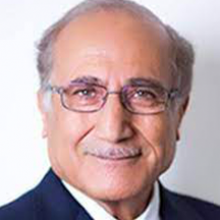You are here
Jordan-US ties
Feb 15,2016 - Last updated at Feb 15,2016
The US promised Jordan $1.3 billion in aid this year.
In a recent lecture at Talal Abu Ghazaleh’s Economic Forum, the USAID deputy director in Jordan gave the details of USAID’s technical assistance to Jordan, which is big and covers a wide range of sectors.
An analysis of the impact of this aid on the Jordanian economy should be carried on. I believe it is going to be both efficient in terms of delivery and speed, and effective in terms of results.
When His Majesty King Abdullah visited Washington to meet with Congress leaders of both parties, he was photographed with President Barack Obama. That photo was called a misfire because it gave the impression that the encounter was not planned. Well, in a way it was.
At the time of that visit, Obama gave his State of the Union address, his last before leaving office. He must have been overwhelmed by the importance of that moment, which somehow defined his legacy.
To allay any doubt that the relations are cooling off or turning sour, a meeting between the two leaders is scheduled on February 24 at the White House.
The two leaders are expected to discuss the war against terrorism, the irksome political solution in Syria, the situation in Iraq and, of course, bilateral relations.
On the war against terrorism, King Abdullah has been continuously improving his paradigm to counter and vanquish Daesh and its affiliates, and to develop a long-term strategy to prevent it from digging its roots in other parts of the world, particularly Asia and Africa.
In his last speech in Berlin, on February 12, the King explained why he thinks the fight against terrorism is a world war in scope and impact, and the reason for the need to develop a holistic strategy against it.
That will constitute the backbone of the bilateral talks between him and Obama.
On Syria, the president must be happy with the news that his Secretary of State John Kerry and Russian Foreign Minister Sergei Lavrov agreed on a formula to kick start the Geneva talks.
Such agreement was given an international legal embodiment by a unanimous Security Council resolution.
The two leaders can now delve into the practical dimensions of negotiations on a political solution in Syria.
Now that Jordan has supported the Saudi initiative to form an Islamic coalition against terrorism, both leaders could agree on an Islamic peacekeeping force in Syria and other places, possibly Iraq, Yemen and Libya, and even in East and West African countries.
On Iraq, Jordan has too much hinging on maintaining peace and security on the roads connecting Amman and Baghdad.
Relations between Amman and Washington are now ready to move to a higher level.
Congressional leaders support such a relation thanks to the King’s successful diplomacy and charm campaigns.
We can also be encouraged by the performance of the lady ambassadors in both Amman and Washington.
The writer, a former Royal Court chief and deputy prime minister, is a member of the Senate. He contributed this article to The Jordan Times.










